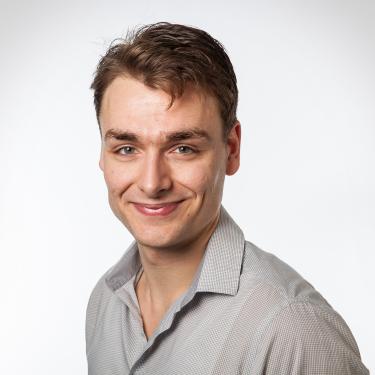Coordinated Control in Wind Turbine Farms
Bart Doekemeijer, Delft Center for Systems & Control, Delft University of Technology

Date: Thursday, April 26 at 3:30pm
Location: Onizuka Conference Room (ECAE 199)
Abstract:
Wind turbines are being placed together in wind farms for the financial gains from economies of scale. However, this also has complications that negatively impact the performance of turbines. These complications arise due to wake formation, which are slower, more turbulent wind structures induced by energy extraction of a turbine rotor. Turbines operating in the wake of an upstream turbine capture less power and experience higher structural loading. In current wind farm operation, these wake effects are neglected. Specifically, a greedy control approach is followed, where each turbine optimizes its own power capture and structural loading, neglecting its impact on other turbines. More recently, coordinated wind farm control strategies which account for these wake effects have shown real potential in increasing the power production and reducing the loads of downstream turbines. The main issue in coordinated wind farm control currently is the questionable reliability of surrogate wind farm models that consistently predict the turbine and flow dynamics over the spectrum of wind farm operation at a tractable computational cost. This is due to the many uncertainties in the atmospheric conditions and tough-to-model flow dynamics at a range of spatial and temporal scales relevant for control.
In this talk, I will address the recent developments in the field of coordinated wind farm control and control-oriented modelling. The talk will cover a short overview of the approaches followed in the literature, ranging from open-loop control using static models to closed-loop control with high-fidelity dynamical models. I will discuss the novel research concepts we are exploring in our research group at the Delft University of Technology, and then zoom in on one of the main topics tackled in my PhD: nonlinear state estimation for a large-scale surrogate wind farm model using an Ensemble Kalman filter. Specifically, through high-fidelity (large-eddy) simulations of a 9-turbine wind farm, I demonstrate the potential of this state observer in reconstructing the complete two-dimensional flow field and the atmospheric properties in the wind farm using exclusively turbine power measurements. This state estimator forms an essential building block for closed-loop control using dynamical wind farm models.
Bio:
Bart Doekemeijer is a PhD candidate at the Delft University of Technology on the topic of closed-loop wind farm control, with a focus on real-time model adaptation algorithms for static and dynamical surrogate wind farm models. He previously completed a Master's degree in Systems & Control Engineering and a Bachelor's degree in Aerospace Engineering, both with honours at the Delft University of Technology. For his master's thesis, he spent a year at CU Boulder under the supervision of Prof. Pao to work on nonlinear state estimation for a dynamical wind farm model.
